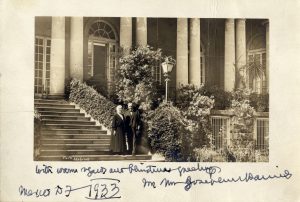“When I look back, I think my greatest mistake [was] my failure as editor of the News & Observer to make sure we had a top-notch investigative reporter on the Little Rascals [Day Care] case in Edenton…. That prosecutor had gone wild, eaten up by ambition, I suppose, to hang these people….
“All the kids talked about being borne through the air this way and that way and flying all over, and it was crazy stuff. As it turned out, [the Edenton Seven were eventually released], but it wrecked their lives forever. And I still feel sorry about that….
“I think had we sent someone like Pat Stith down there, that would have been it. But see, at that time, Edenton already was a pretty far reach for the News & Observer…. [Our] pulling out of eastern North Carolina [to cut expenses] might have affected my thinking [about] whether we were really responsible for doing something about that miscarriage of justice.”
— From Joseph Mosnier’s interview with Claude Sitton, editor of the News & Observer from 1968 to 1990 (Southern Oral History Program, Southern Historical Collection, UNC Chapel Hill, July 12, 2007)
My blog, littlerascalsdaycarecase.org, has Sitton’s complete comments on the case.

